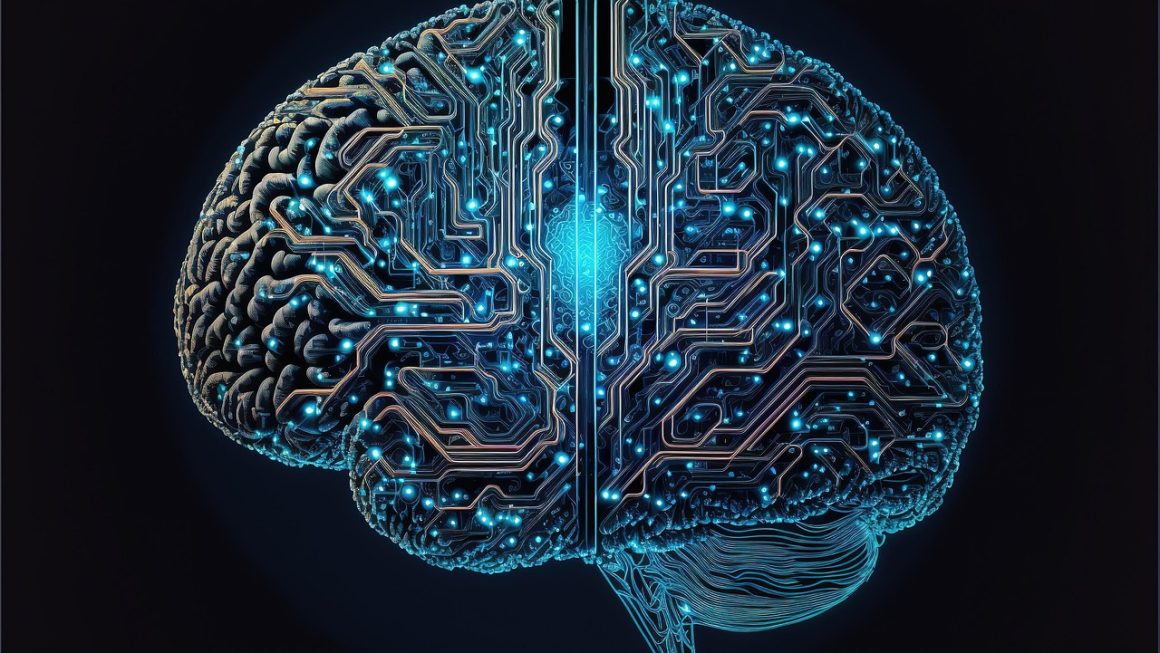AI diagnostics is rapidly transforming healthcare, promising faster, more accurate diagnoses and personalized treatment plans. This technological revolution is impacting everything from radiology to pathology, and even mental health, offering new hope for patients and streamlining workflows for healthcare professionals. Let’s delve into the exciting world of AI diagnostics and explore its potential.
What is AI Diagnostics?
Defining AI Diagnostics
AI diagnostics uses artificial intelligence algorithms to analyze medical data, such as images, patient history, and lab results, to assist in the diagnosis of diseases and conditions. This differs from traditional diagnostic methods by automating analysis, identifying patterns invisible to the human eye, and providing objective, data-driven insights. AI isn’t replacing doctors; instead, it’s augmenting their abilities and providing crucial support.
Key Technologies Behind AI Diagnostics
Several AI technologies are crucial for AI diagnostics:
- Machine Learning (ML): ML algorithms learn from vast datasets to recognize patterns and make predictions. Supervised learning, unsupervised learning, and reinforcement learning are all used in diagnostic applications.
- Deep Learning (DL): A subset of ML, deep learning uses artificial neural networks with multiple layers to analyze complex data like medical images with high accuracy. Convolutional Neural Networks (CNNs) are particularly effective in image analysis.
- Natural Language Processing (NLP): NLP enables AI to understand and process human language, allowing it to extract relevant information from medical records, research papers, and patient notes.
The Importance of Data in AI Diagnostics
The effectiveness of AI diagnostics hinges on the availability of high-quality, diverse, and well-annotated data. Without sufficient data, AI models cannot be adequately trained and validated, leading to inaccurate or biased results. Data privacy and security are also paramount considerations when dealing with sensitive medical information.
Applications of AI Diagnostics in Healthcare
Radiology and Medical Imaging
AI is making significant strides in radiology. AI-powered algorithms can analyze X-rays, CT scans, and MRIs to detect subtle anomalies that might be missed by human radiologists, leading to earlier and more accurate diagnoses of conditions like:
- Lung cancer: AI can identify early-stage nodules on CT scans. Studies show AI can improve lung cancer detection rates by up to 20%.
- Breast cancer: AI can assist in analyzing mammograms to detect suspicious lesions, potentially reducing false positives and false negatives.
- Cardiovascular diseases: AI can analyze cardiac imaging to assess heart function and detect blockages in arteries.
- Example: Companies like Aidoc and Zebra Medical Vision provide AI solutions for radiology, aiding in the detection of various conditions from pulmonary embolism to intracranial hemorrhage.
Pathology and Laboratory Medicine
AI is also revolutionizing pathology by automating image analysis and accelerating the diagnostic process. AI algorithms can analyze tissue samples to identify cancerous cells, predict disease progression, and guide treatment decisions.
- Cancer diagnosis: AI can analyze microscopic images of tissue samples to detect cancerous cells with high accuracy, improving diagnostic precision and reducing pathologist workload.
- Drug discovery and development: AI can analyze large datasets of genomic and proteomic data to identify potential drug targets and predict drug efficacy.
- Example: PathAI uses AI to improve the accuracy and speed of cancer diagnoses. Their algorithms assist pathologists in analyzing biopsies and identifying subtle features indicative of cancer.
Mental Health Diagnostics
AI is beginning to play a role in mental health diagnostics, providing tools for early detection and personalized treatment of mental disorders.
- Sentiment analysis: AI can analyze speech patterns and text messages to detect changes in mood and identify individuals at risk of depression or suicide.
- Personalized treatment plans: AI can analyze patient data to predict treatment outcomes and tailor treatment plans to individual needs.
- Example: Startups are developing AI-powered chatbots that can screen individuals for symptoms of mental health disorders and provide initial support.
Remote Patient Monitoring
AI-powered devices are also facilitating remote patient monitoring, providing continuous data on vital signs and other health metrics.
- Early warning systems: AI algorithms can analyze data from wearable sensors to detect early signs of deterioration and alert healthcare providers.
- Chronic disease management: AI can provide personalized recommendations for managing chronic conditions such as diabetes and heart failure.
Benefits of AI Diagnostics
Improved Accuracy and Efficiency
AI diagnostics can improve the accuracy and efficiency of the diagnostic process. By automating image analysis and identifying subtle patterns, AI can reduce human error and accelerate the time to diagnosis.
- Reduced diagnostic errors: AI can minimize the risk of overlooking critical findings, leading to more accurate diagnoses.
- Faster turnaround times: AI can analyze medical images and data much faster than humans, reducing waiting times for patients.
Personalized Treatment Plans
AI can help personalize treatment plans by analyzing patient data and predicting treatment outcomes. This allows healthcare providers to tailor treatment strategies to individual needs, leading to better outcomes.
- Predictive analytics: AI can predict which patients are most likely to respond to specific treatments.
- Targeted therapies: AI can identify genetic markers that can be used to guide the selection of targeted therapies.
Cost Savings
AI diagnostics can reduce healthcare costs by improving efficiency, reducing errors, and preventing unnecessary treatments.
- Reduced hospital readmissions: AI can identify patients at high risk of readmission, allowing healthcare providers to intervene and prevent costly hospital stays.
- Lower administrative costs: AI can automate administrative tasks, freeing up healthcare professionals to focus on patient care.
Increased Access to Healthcare
AI diagnostics can increase access to healthcare in underserved communities by providing remote diagnostic capabilities and reducing the need for specialized expertise.
- Telemedicine: AI can enable remote diagnosis and monitoring of patients in rural areas.
- Point-of-care diagnostics:* AI-powered devices can provide rapid diagnostic results at the point of care, eliminating the need for laboratory testing.
Challenges and Ethical Considerations
Data Privacy and Security
Protecting patient data is paramount. Strict adherence to regulations like HIPAA is crucial to prevent unauthorized access and misuse of sensitive medical information.
Bias and Fairness
AI algorithms can perpetuate and even amplify existing biases in data, leading to unfair or discriminatory outcomes. It’s crucial to ensure that AI models are trained on diverse datasets that reflect the populations they will serve. Algorithmic bias can affect outcomes for certain demographics.
Explainability and Transparency
Many AI models, particularly deep learning models, are “black boxes,” meaning that it’s difficult to understand how they arrive at their conclusions. This lack of transparency can make it difficult for healthcare providers to trust and rely on AI-driven diagnoses.
Regulatory and Legal Frameworks
The regulatory and legal frameworks for AI diagnostics are still evolving. Clear guidelines are needed to ensure that AI-powered diagnostic tools are safe, effective, and used responsibly. Clear lines of responsibility and accountability need to be defined.
Conclusion
AI diagnostics is revolutionizing healthcare, offering the potential for faster, more accurate diagnoses, personalized treatment plans, and increased access to care. While significant challenges remain, including data privacy, bias, and explainability, the benefits of AI diagnostics are undeniable. As AI technology continues to evolve, it will play an increasingly important role in transforming the future of medicine, ultimately improving patient outcomes and enhancing the quality of healthcare for all. Embracing AI responsibly and ethically will be key to unlocking its full potential.




